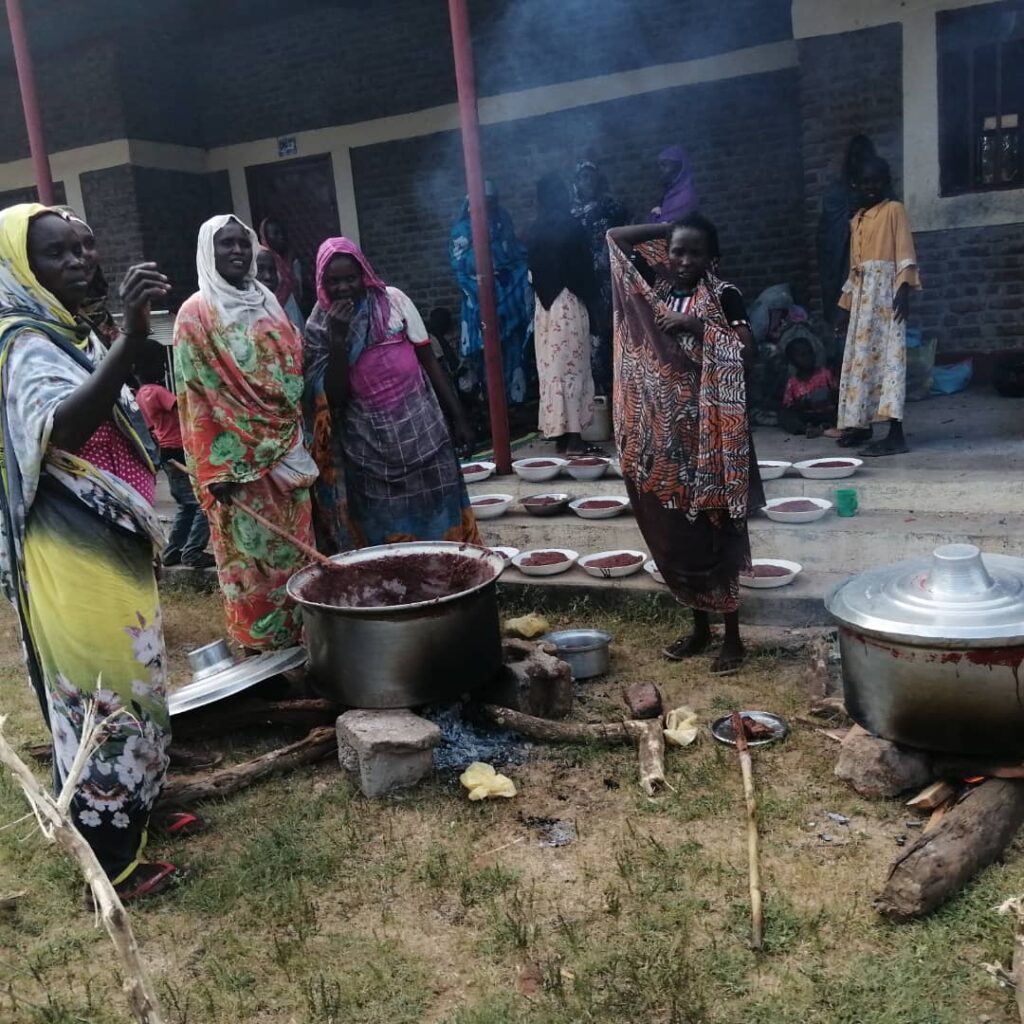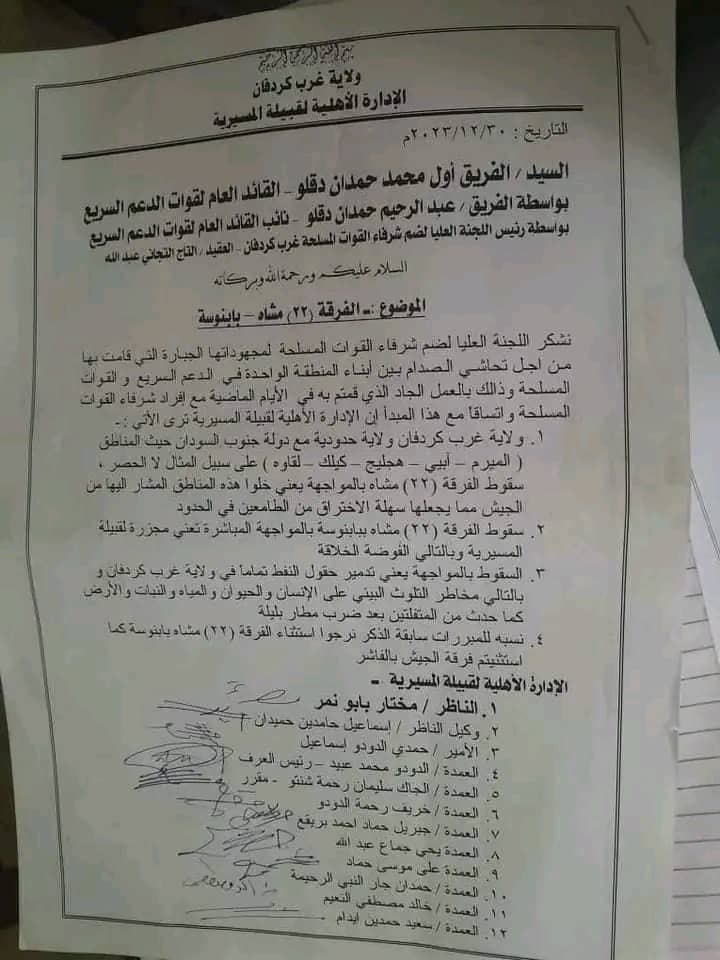West Kordofan: ‘Imminent RSF attack on Babanousa’ prompts third wave of displacement’

Displaced women prepare food at a Kadugli shelter (File photo: RD)
Babanousa in West Kordofan is witnessing a new mass exodus as people fear an imminent attack by the Rapid Support Forces (RSF) on the town. Leaders of the Misseriya tribe caution of dire environmental consequences if an RSF attack damages the area’s oilfields.
Following a few days of ‘cautious calm‘, fear is growing for an ‘imminent attack’ on the base of the Sudan Armed Forces (SAF) 22nd Infantry Division in Babanousa in the coming days, after the failure of native administration* leaders and community committees to reach an agreement to prevent a confrontation between the RSF and the SAF.
Tension and rumours prompted people to start leaving West Kordofan town in what can be considered the third wave of displacement since September.
Hundreds of families displaced to nearby villages are facing difficult humanitarian conditions, with intense cold and severe food shortages, in addition to the lack of health centres and hospitals, and the difficulty to access medical services. This is becoming a complex health and humanitarian catastrophe.
All areas of West Kordofan, which have been cut off from communications for more than two months, suffer from a media blackout. Health professionals report a frightening rise in neonatal mortality rates in addition to high maternal mortality rates during childbirth, often from malnutrition, lack of medicine, and inability to reach hospitals and health centres with few health personnel who lack the most basic supplies.
The residents of Babanousa appealed to all national, regional, and international organisations to provide food, medicine, clothing, and shelter to mitigate disaster.

Misseriya
The leader of the Misseriya tribe, Emir Mukhtar Babu, and 22 Misseriya leaders, sent a letter to RSF commander, Lt Gen Mohamed ‘Hemedti’ Dagalo, declaring their rejection of escalating the war to their areas of influence, and removing the army from Misseriya homeland. They assert that should the SAF 22nd Infantry Division in Babanousa fall to the RSF, it would entail the complete destruction of the area’s oilfields. “This will result in risks of environmental pollution of water, plants, and land, as happened after the bombing of the airport and the Balila oilfield,” they say.
In late October 2023, the RSF launched an attack on the Balila oilfield, as well as the Balila Airport in West Kordofan, that caused extensive damage. At the time, the RSF claimed to have “liberated the airport” and “inflicted heavy losses, in both lives and equipment” on the SAF. However, just hours later, the RSF announced its withdrawal from the oilfield and the airport, and called on the oil companies and workers in the area to resume their operations.
A subsequent RSF attack on Babanousa in late November prompted a further wave of civilian displacement.
* The Native Administration was instituted by British colonial authorities seeking a pragmatic system of governance that allowed for effective control with limited oversight by the state. The state-appointed tribal leaders were also responsible for executing policies, collecting taxes, and mobilising labour on behalf of the central government. According to the Darfur Bar Association (DBA), the Native Administration during the 30-year dictatorship of Omar Al Bashir did not represent the real community leaders.











 and then
and then